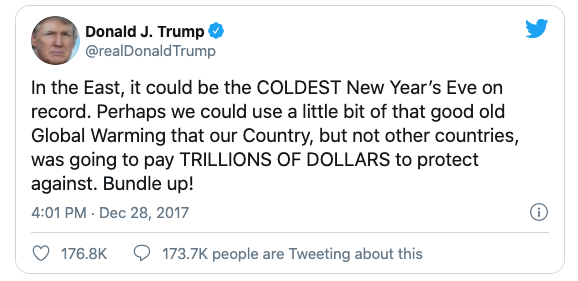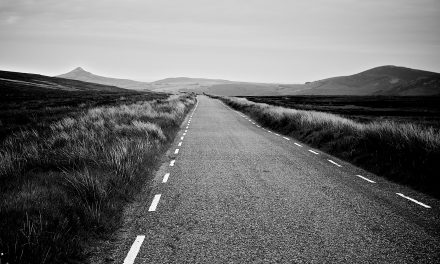
This is the fourth post in our Conscience at the Polls series. For the first post and introduction to the series, go here. For the second, which focuses on racism, go here. For the third on social sin of racism and conscience formation, go here.
“Our goal is not to amass information or to satisfy curiosity, but rather to become painfully aware, to dare to turn what is happening to the world into our own personal suffering and thus to discover what each of us can do about it.”
Pope Francis, Laudato Si, 19
According to NASA’s Global Climate Change: Vital Signs of the Planet, climate change refers to the changes happening to our planet, including global warming; rising sea levels; shrinking mountain glaciers; accelerating ice melt in Greenland, Antarctica and the Arctic; and shifts in flower/plant blooming times. 97% of actively publishing climate scientists agree that humans are causing global warming and climate change. Even if we stopped emitting greenhouse gases today, global warming would continue to happen for at least several more decades, if not centuries. We are at a crucial time for addressing this global emergency. In light of this evidence, Catholic voters must consider climate change as one of the pressing issues of this election season.
Pope Francis issued Laudato Si: On Care for Our Common Home in 2015, but many Catholics in the US are still not familiar with this important document. In Laudato Si, the pope argues that “the climate is a common good, belonging to all and meant for all” (23) and he highlights global inequality as a pressing moral problem, noting that “the deterioration of the environment and of society affects the most vulnerable people on the planet.” He cites the Bolivian bishops who argue that “the gravest effects of all attacks on the environment are suffered by the poorest.” (48). Pope Francis critiques a “throwaway culture” (22) and has specific policy proposals including reducing reliance on highly polluting fossil fuels (165), developing widely accessible sources of renewable energy (165), reducing pollution and penalizing high polluting countries (170), developing enforceable international agreements (173), and eliminating dehumanizing poverty (175). He repeatedly urges consumers to consider the environmental and social costs of overconsumption (222) and urges corporate executives to prioritize people and care for the environment over profits (185-187, 195). At the five-year anniversary celebration for the document, the Holy See’s foreign minister, Monsignor Paul Gallagher expressed concern with the U.S. pullout from the Paris Climate Agreement, saying “We do believe that U.S. engagement in many fields is vital to the future of the world’s environment,” and he noted that climate change “doesn’t respect borders.” Key themes in Laudato Si were emphasized again in the post-synodal exhortation Querido Amazonia, especially chapter three “An Ecological Dream.” There, Pope Francis draws on the poetry of Juan Carlos Galeano to convey the signs of the times and to show how “care of people and care of ecosystems are inseparable.” (QA 42). “Poetry helps give voice to a painful sensation shared by many of us today (47):
“Those who thought that the river was only a piece of rope,
JUAN CARLOS GALEANO, “Los que creyeron”, in Amazonia y otros poemas, ed. Universidad externado de Colombia, Bogotá, 2011, 44.
a plaything, were mistaken.
The river is a thin vein on the face of the earth…
The river is a cord enclosing animals and trees.
If pulled too tight, the river could burst.
It could burst and spatter our faces with water and blood”
Pope Francis, like so many climate scientists and climate activists, is urging a wake up call for anyone who will listen, and especially for complacent Catholics. We have “to become painfully aware, to dare to turn what is happening to the world into our own personal suffering and thus to discover what each of us can do about it.” And it is painful. Make yourself look at the NASA Images of Change. Browse the resources of the Catholic Climate Covenant. And compare the US Presidential candidates’ positions, commitments, rhetoric, and actions on climate change.
What will you find?

President Trump is no friend to the climate. If you are interested in learning more, you can explore his record in his own words, since Jeremy Schulman of Mother Jones has compiled Every Insane Thing Donald Trump Has Said About Global Warming. But it isn’t just about Trump’s denialist attitude or his mocking of teenage activist Greta Thunberg. Voters also need to review his record of actions, all of which spell danger for our environment.
The Sabin Center for Climate Change has documented more than 130 steps the Trump administration has taken to scale back measures to fight climate change, including:
1. Deciding to withdraw from the Paris climate agreement, which committed the US and 187 other countries to keep rising global temperatures below 2C
2. Replacing President Barack Obama’s Clean Power Plan, which would have limited carbon emissions from coal and gas-fired power plans, with the Affordable Clean Energy rule, which had weaker regulations
3. Attempting to freeze the fuel efficiency standards imposed on new vehicles, and prevent California from setting its own emissions rules
4. Just two weeks ago, Bureau of Land Management opened 1.5 million acres of the Arctic National Wildlife Refuge for oil and gas drilling
Is Biden better?

Vice President Joe Biden’s campaign website lays out his plan for “building a modern, sustainable infrastructure and an equitable clean energy future.” Biden’s plan includes investment in a clean energy economy, conservation, public transit, safe drinking water, and environmental justice. One notable proposal is the creation of a Civilian Climate Corps. Here’s how the website describes this program:
“These workers will use sound, science-based techniques to thin and sustainably manage our forests, making them more resilient to wildfire and enhancing their carbon intake and habitat integrity; restore wetlands to protect clean water supplies and leverage greater flood protection; repair dilapidated irrigation systems to conserve water; plant millions of trees to help reduce heat stress in urban neighborhoods; protect and restore coastal ecosystems, such as wetlands, seagrasses, oyster reefs, and mangrove and kelp forests, to protect vulnerable coastlines, sequester carbon, and support biodiversity and fisheries; enhance the carbon intake of natural and working lands, wetlands, reefs, and underwater mangrove and kelp forests; remove invasive species; improve wildlife corridors; build hiking and biking trails and access to other recreational amenities; and reinvigorate landscapes and seascapes, unlocking economic and climate resilience in places like the Great Lakes, the Everglades, our nation’s great river systems including the Colorado River, and the Gulf of Mexico.”
The Democratic party platform on environmental justice can be found here for those interested in further reading. And you won’t find any Biden tweets ridiculing a teenage climate activist or saying that climate change is a hoax, so that’s refreshing.
As has been stated in previous posts on this blog, Catholic voters have many factors to consider when voting for candidates. Each person has an obligation to participate in political life, form their conscience, and work for the common good of all. No political party aligns perfectly with authoritative Catholic teachings. Each voter must make a careful discernment, weighing values and disvalues, competence and character, and the moral gravity of social issues at stake in a given election. The scientific community is encouraging citizens to recognize the “signs of the times” in melting polar ice caps, rising sea levels, and the disproportionate harm born by impoverished communities.
But I thought abortion was “pre-eminent”?
The USCCB did say in the Introductory Letter for Forming Consciences for Faithful Citizenship “the threat of abortion remains our preeminent priority because it directly attacks life itself” but they went on to say that “at the same time, we cannot dismiss or ignore other serious threats to human life and dignity such as racism, the environmental crisis, poverty, and the death penalty.” Bishop Robert McElroy and others have highlighted the importance of reflection on climate change when evaluating candidates’ records. In a speech at the University of San Diego, Bishop McElroy noted that abortion is an intrinsically evil act, but that does not mean that candidates who seek laws opposing intrinsically evil actions automatically have a primary claim to political support in the Catholic conscience. “The problem with this approach is that while the criterion of intrinsic evil identifies specific human acts that can never be justified, this criterion is not a measure of the relative gravity of the evil in particular human or political actions.” In discussing climate change as an election issue, Bishop McElroy said that “the long-term death toll from unchecked climate change is larger [than abortion] and threatens the very future of humanity,” adding “There is no mandate in universal Catholic social teaching that gives a categorical priority to either [abortion or climate change] as uniquely determinative of the common good.”
Pope Francis is inviting Catholics to become painfully aware of the gravity of climate change as a moral crisis, and to take action. One way to take action is to vote.
Future posts in this series will attend to abortion directly, as well as to other pertinent issues. We hope you check back for more.


